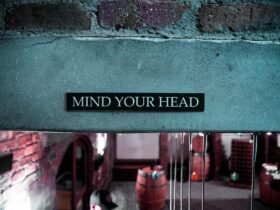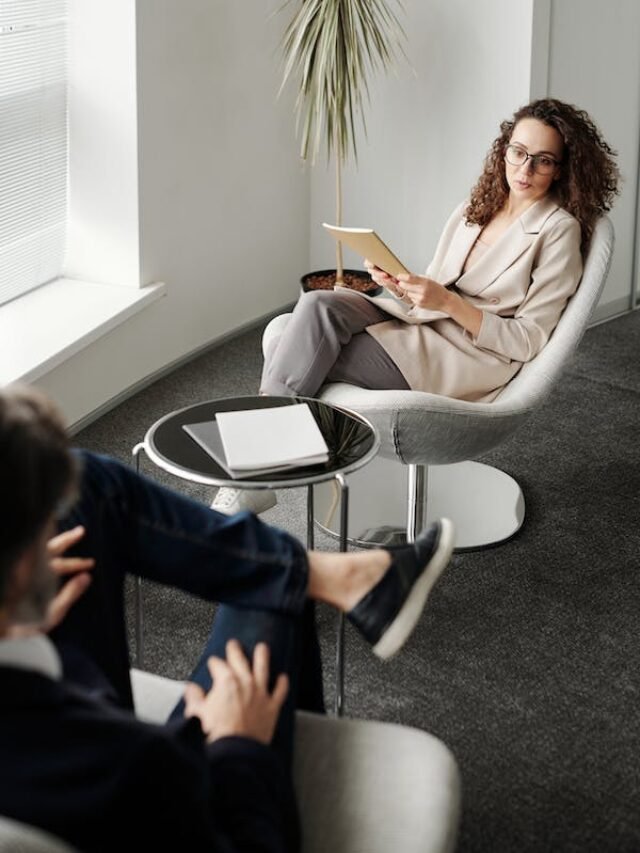Last Updated on May 9, 2024 by Daniele Lima
How to show your attitudes and values in an interview that will catch the attention of recruiters
In the competitive and dynamic scenario of the world of work, the job interview appears as a critical point in a candidate’s promising professional trajectory. Understanding the secrets of this selection process goes beyond interpreting standardized questions and presenting qualifications. Explores a complex area where interpersonal skills, trust strategies, and persuasion are intertwined.
On this journey toward professional success, we will discover the secrets of job interviews by exploring strategies that go beyond traditional methods. An interview is more than a formality, it is a moment of connection between experts and companies and a unique opportunity to get to know each other beyond our CVs.
In this exclusive guide, we’ll look at everything from initial preparation to conversational dynamics during an interview. In addition to frequently asked questions, we’ll cover subtle body language, recruiter expectations, and how to turn challenges into opportunities.
A deep dive into the world of job interviews will not only provide you with practical tools for success but also foster a deeper understanding of how to highlight your skills authentically and effectively. Discover the secrets that will transform your job interview from a daunting obstacle to a springboard for professional growth.
Table of Contents
What to wear to a job interview
When seeking an interview, you need to convey professionalism, confidence, and respect for the company culture. Here are some general guidelines:
Clothing:
Choose clothes that match your company’s dress code. When in doubt, it is better to err on the side of formality rather than informality. For men: A safe bet is a suit or dress pants with a button-down shirt and tie. Make sure your clothes are clean and well-pressed. For women: Suits, dresses, and blouses paired with skirts or dress pants are acceptable. Avoid very tight or low-cut clothing.
Cor:
Choose neutral and soft colors. Colors such as black, gray, navy, and brown are traditional options for interviews. Avoid large prints or very bright colors unless they are culturally acceptable in your specific industry or company.
Accessories:
Keep your accessories simple and smart. An elegant watch, small earrings, and a handbag or briefcase will be enough. Avoid accessories that can be distracting or noisy.
- Personal hygiene:
Prepare well and practice good personal hygiene. This includes well-groomed hair, trimmed nails, and an overall neat appearance. Avoid excessive use of cologne or cologne.
Posture:
Maintain an upright and confident posture. The way you present yourself physically can convey a lot about your confidence and professionalism.
Pay attention to details:
Make sure your shoes are clean and in good condition. If you wear makeup, keep it light and natural.
Adapt to the company environment:
If possible, research the company culture before the interview to ensure your appearance matches the environment. Some companies take a more formal approach, while others take a more relaxed approach. Keep in mind that these are general guidelines and may vary depending on your industry and company culture. The objective is to make a good initial impression, highlighting your qualifications and professionalism.
What to bring to an interview

Copies of your CV: If you have more than one resume, provide the interviewer with several printed copies of your resume. Even if you already have a copy, it’s always a good idea to have a backup copy.
Bibliography: If applicable, provide a bibliography. Include the name, title, company, and contact information for each reference.
Portfolio: If your work involves samples like graphic design, writing, or similar projects, bring a physical or electronic portfolio to show during the interview.
Notebook and pen: Show your interest and professionalism by carrying a notebook and pen. You can take notes or write down important information you receive during the interview.
Presentation letter: Even if you sent your cover letter via email, you will need a printed copy to deliver it in person.
Business Contact Information: Have your business address and phone number ready in case an emergency arises or you need to call.
Personal identification: You must bring a valid form of identification, such as a driver’s license or ID card if you are asked to fill out a form or verify your identity.
The 10 most common questions and answers in a job interview:
1 – How do you manage your time and prioritize your tasks?
Response: “I use techniques like the Pomodoro Technique to stay focused and increase productivity. I’m also good at prioritizing, identifying urgent tasks, and delegating when necessary.”
2 – What is your approach to learning a new skill or skill?
Response: “I am active in continuous learning. I take online courses, read books, and attend seminars. I am always looking for opportunities to expand my skills.
3 – How would you describe your leadership style?
Response: “My leadership style is collaborative and results-oriented. I encourage team participation, I value everyone’s contribution, and focus on inspiration and motivation to achieve common goals.”
4 – Have you ever come across a project that didn’t go as planned? How do I deal with this?
Response: “In these situations, we reassess our strategy, identify key issues, and work with our teams to implement effective solutions. I learned from this experience and use it to improve my management of future projects.”
5 – How do you adapt to changes in your work environment?
Response: I see change as an opportunity to learn and grow. Answer Flexible with changing situations, I communicate openly and look for ways to help my team succeed during transitions.”
6 – How do you deal with multitasking?
Response: “I’m careful to manage multiple tasks using tools like to-do lists and calendars to help me stay focused and ensure ensure that each project receives the necessary attention. I prioritize tasks based on urgency and importance. Do.”
7 – Have you ever encountered a difficult team member? How do you approach this situation?
Response: “In these situations, we try to understand our colleagues’ concerns, maintain open communication, and find collaborative solutions. Sometimes it is necessary to seek advice from managers to ensure a healthy work environment.”
8 – What is your experience with virtual or remote teamwork?
Response: “I have significant experience working remotely. I use online collaboration tools, maintain regular communication with my team, and try to ensure effective collaboration, even remotely.”
9 – How do you deal with negative feedback situations?
Response: “I see negative feedback as an opportunity to learn and improve. I look at criticism constructively, I identify areas for improvement, and enter measures to correct them.”
10 – How can you handle tight deadlines and high-pressure situations without compromising the quality of your work?
Response: “In situations with tight deadlines, divide the work into manageable steps, starting with the most important tasks. Communicate clearly with your team about deadlines and any issues that may arise. Stay calm, focused and, if possible, anticipate potential obstacles… This is a key element of our approach to ensuring the quality of our work does not suffer.”
How to behave in a job interview?

Behaving appropriately in a job interview is crucial to making a good impression and increasing your chances of being selected. Here are some unique tips to stand out during an interview:
Search the Company:
Demonstrate your interest in the company by researching its history, values , and organizational culture. Mentioning specific information during the interview shows that you have prepared adequately.
Communicate with Confidence:
Maintain eye contact, a firm handshake, and an upright posture. These elements communicate trust and professionalism. Avoid nervous body language that can cause anxiety.
Showcase your achievements:
In addition to listing your skills, highlight specific accomplishments from your past experience. This gives the interviewer a realistic understanding of how you can contribute to the organization.
Show customization:
Demonstrate your ability to adapt to the corporate environment by mentioning a situation in which you had to adapt to a new challenge. Flexibility is a quality that employers value.
Work ethics:
Reinforce the importance of ethics in your professional approach. Share examples of how you made ethical decisions in difficult situations and demonstrate that you are an honest professional aligned with the company’s values.
Learn from failure:
Be open-minded about your experiences when faced with challenges or setbacks. The important thing is to highlight what you learned from the situation and how you used those lessons to improve your skills and performance.
Long-term career plan:
Share your long-term career vision, showing how the role in question aligns with your professional goals. This shows that you are committed to growing with the company.
Expressions of gratitude:
Give thanks for the opportunity to be interviewed and for considering your profile. This makes a positive impression and shows appreciation for the opportunity to be part of the team.
Conclusion:
In conclusion, we can say that meticulous preparation, a deep understanding of selection processes, and the application of specific strategies are fundamental to maximizing success in job interviews.
By demystifying the secrets behind this important moment in the search for professional opportunities, candidates can not only increase their chances of being selected but also develop valuable skills that will contribute to the growth of their careers.
In a competitive job market, the ability to stand out positively in interviews not only reflects suitability for the role but also demonstrates proactivity, effective communication and emotional intelligence.
Therefore, by adopting a strategic and proactive approach, candidates can transform the job interview from a dreaded challenge into a valuable opportunity to showcase their full potential and achieve much-desired professional success.
Job Interview – FAQ:
What are weaknesses job interview
Discussing weaknesses in a job interview is an opportunity to demonstrate self-awareness and a growth mindset. Avoid generic answers and don’t focus on areas for improvement related to the role. Give examples of how you have overcome this weakness in the past and focus on improving yourself.
what to say in a job interview
In a job interview, highlight your qualifications, experience, and interest in the job. Use the STAR method (Situation, Task, Action, Result) to develop your answers to behavioral questions. Showcase your job-appropriate accomplishments and skills. Express your interest in the company and ask questions to get involved.
what to wear to a job interview
Consider clothing size, company culture, and business model. Choose conservative, well-fitting clothes in neutral colors. For men, a suit with a tie and polished shoes is suitable. Women can choose from designer clothes, dresses, or shirts combined with jeans or skirts. Remember that your appearance is not good by avoiding many accessories.
how to cancel a job interview
If you need to cancel a job interview, do it as quickly and politely as possible. Contact the interviewer directly by email or phone and apologize for the inconvenience. Provide a brief description of the cancellation, such as unforeseen circumstances or changes in availability. Schedule a meeting if possible and stay in full communication.










Leave a Reply